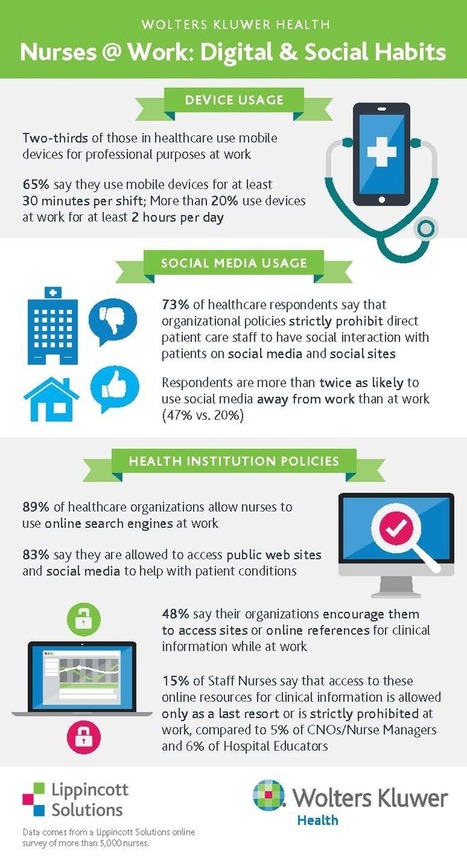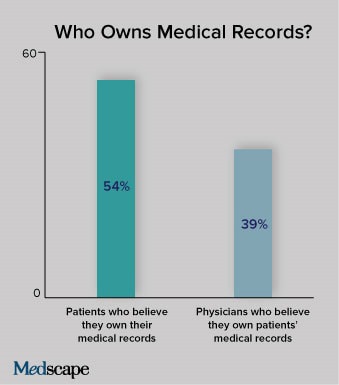Infographic created by Wolters Kluwer Health highlights nurses' digital
and social habits at work as nurses are increasingly relying on mobile
devices.
83 percent of nurses perceive that their
organization’s policy allows patient care staff access to public web
sites, including social media, to access general health information that
will help them with patient conditions, according to a recent survey
from Wolters Kluwer Health.
The findings reveal that
65 percent of nurses are using mobile devices for professional purposes
at work at least 30 minutes per day, while 20 percent use them for two
hours or more. Also notable, these same results indicated that the vast
majority of organizations strictly prohibit actual interaction with
patients through the technology.
 Alarm issues have ranked as the top
health technology hazard for 2015 on ECRI Institute's annual top-10
report. The authors recommend that facilities address alarm issues
through staff training and by limiting the number of people who
establish default settings. MedCity News et al.
Alarm issues have ranked as the top
health technology hazard for 2015 on ECRI Institute's annual top-10
report. The authors recommend that facilities address alarm issues
through staff training and by limiting the number of people who
establish default settings. MedCity News et al. 











